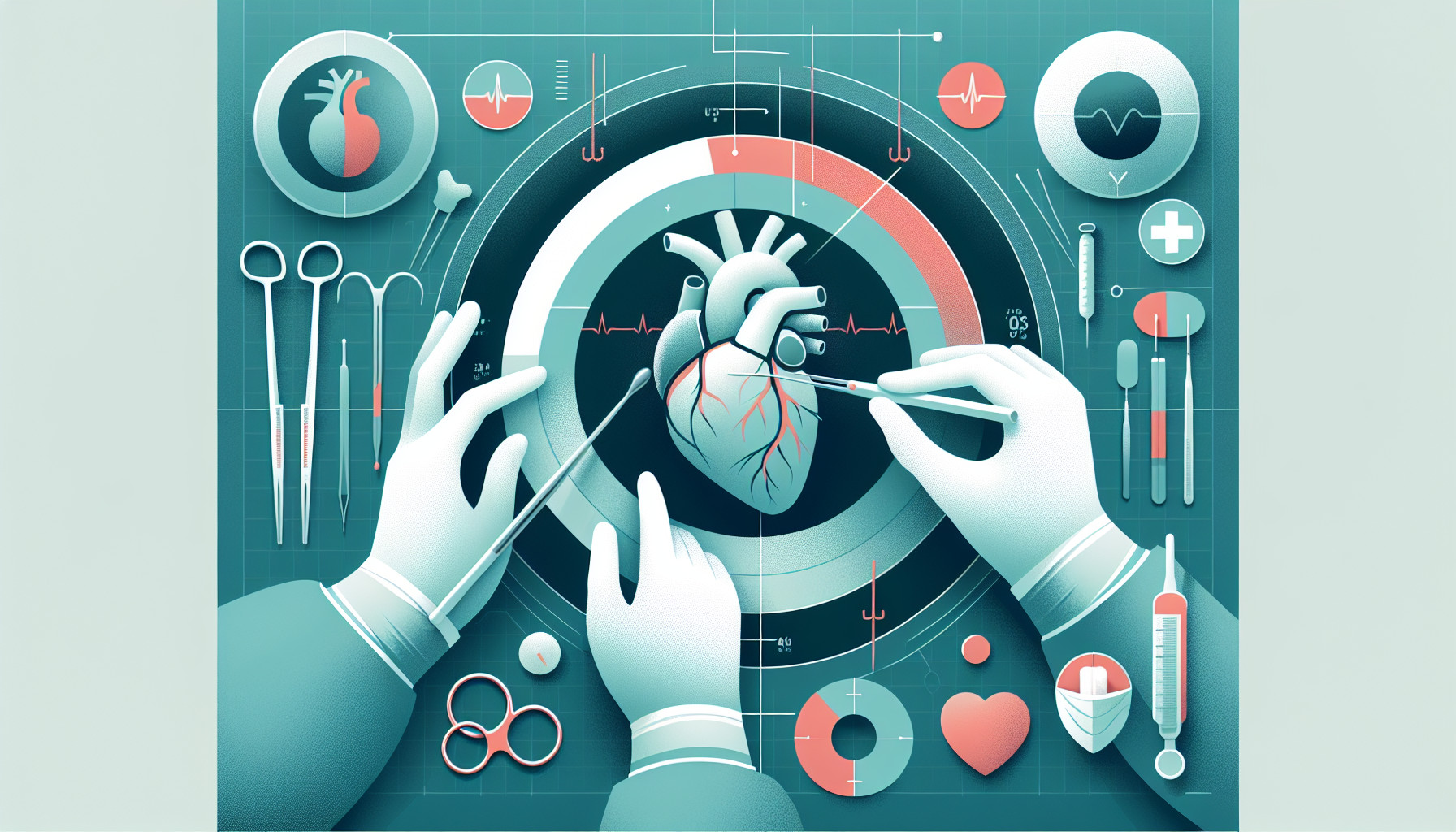Our Summary
This research paper discusses a type of heart surgery called ventricular tachycardia (VT) ablation. The procedure is becoming more common because it has been shown to have many benefits. However, it’s important for doctors to be aware of the potential risks and complications that can occur during and after this procedure. The paper goes in-depth into these potential issues.
FAQs
- What is ventricular tachycardia (VT) ablation?
- What are the potential risks and complications of VT ablation?
- Why is VT ablation becoming a more common procedure?
Doctor’s Tip
One helpful tip a doctor might tell a patient about cardiac ablation is to follow all pre-procedure instructions carefully, including fasting before the procedure and taking any prescribed medications as directed. It is also important to discuss any concerns or questions with your healthcare provider before the procedure to ensure a successful outcome. Additionally, following post-procedure care instructions, such as avoiding strenuous activities and taking prescribed medications, is crucial for a smooth recovery.
Suitable For
Patients who are typically recommended for cardiac ablation are those who have certain types of abnormal heart rhythms, such as atrial fibrillation, atrial flutter, supraventricular tachycardia, or ventricular tachycardia. These abnormal heart rhythms can cause symptoms such as palpitations, chest pain, dizziness, fainting, or shortness of breath.
Patients who have not responded well to medications or other treatments for their abnormal heart rhythms may also be recommended for cardiac ablation. Additionally, patients who have a high risk of complications from their abnormal heart rhythms, such as those with underlying heart disease or a history of heart attacks, may benefit from this procedure.
It’s important for patients to discuss their individual case with a cardiologist to determine if cardiac ablation is the right treatment option for them. The decision to undergo cardiac ablation should be made based on a thorough evaluation of the patient’s medical history, symptoms, and overall health.
Timeline
Before cardiac ablation:
- Patient undergoes a thorough evaluation by a cardiologist to determine if they are a candidate for cardiac ablation
- Patient may undergo various tests such as an electrocardiogram (ECG), echocardiogram, and possibly a cardiac MRI or CT scan to assess the extent of the arrhythmia
- Patient may be advised to stop certain medications or make lifestyle changes leading up to the procedure
- Patient will have a discussion with their healthcare team about the risks and benefits of the procedure
During cardiac ablation:
- Patient is typically put under sedation or general anesthesia
- A catheter is inserted into a blood vessel in the groin or neck and guided to the heart
- Radiofrequency energy or cryoablation is used to create scar tissue in the heart to block abnormal electrical signals
- Procedure can take several hours to complete
After cardiac ablation:
- Patient will be monitored closely in a recovery area for several hours
- Patient may experience some discomfort or soreness at the catheter insertion site
- Patient may be prescribed medications to help manage any post-procedure symptoms
- Patient will typically need to follow up with their cardiologist for regular check-ups and monitoring
- Patient may be advised to make further lifestyle changes or adjustments to their medications based on the success of the procedure.
What to Ask Your Doctor
- What is cardiac ablation and how does it work?
- Am I a good candidate for cardiac ablation?
- What are the potential risks and complications associated with cardiac ablation?
- How successful is cardiac ablation in treating my specific heart condition?
- What is the recovery process like after cardiac ablation?
- Are there any lifestyle changes or medications I will need to take after the procedure?
- How long will the effects of cardiac ablation last?
- Are there any alternative treatments to consider instead of cardiac ablation?
- How many cardiac ablation procedures have you performed and what is your success rate?
- What should I do if I experience any complications or symptoms after the procedure?
Reference
Authors: Pastapur A, McBride D, Deshmukh A, Driesenga S, Ghannam M, Bogun F, Liang JJ. Journal: J Interv Card Electrophysiol. 2023 Jan;66(1):221-233. doi: 10.1007/s10840-022-01357-z. Epub 2022 Sep 2. PMID: 36053374
